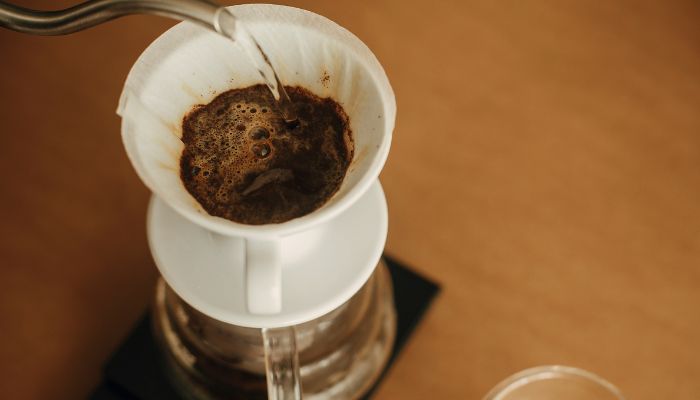What Is the Best Water to Use When Making Coffee?
You might not think there’s a science to making coffee, but what if the only thing standing in your way of the perfect brew is the water you use? If you’ve turned to ultra-pure water for coffee all these years, you could miss out on minerals and pH levels that make it even better. At the same time, you want to ensure the water is safe for your health.
When it comes to coffee, water is not simply an ingredient. A perfect cup of joe requires a technique few have mastered. Yet, by switching the type of water you use, you could improve your coffee’s richness. So, what is the best water for coffee?
Is Purified Water Good for Making Coffee?
Unsafe drinking water in places like Flint, Michigan, West Virginia and towns along the Cape Fear River in North Carolina has put many on high alert about exposure to toxins. Fear surrounding “forever chemicals” has led many people to purchase bottled water from grocery stores to avoid potential hazards.
However, is purified water the best water to make coffee? It’s essential to differentiate the most common types of water first.
Distilled
Consider that all water contains salt, minerals and bacteria. Sometimes, contaminants are hazardous to your health. Distilling water — a process in which the steam from boiled water cools and becomes liquid again — removes 99.9% of those impurities. Many people say it’s the purest type of water you can consume. However, it will taste somewhat bland.
Purified
Purified water has undergone reverse osmosis to eliminate those chemical impurities and microbes. The U.S. Environmental Protection Agency (EPA) mandates that water contains no more than 10 parts per million of dissolved solids and has zero microbes.
Filtered
Filtered water is your everyday tap water running through local water treatment centers to remove chlorine, bacteria and other hazardous chemicals. The U.S. Centers for Disease Control and Prevention says there may still be some chlorine or other compounds deemed safe for human consumption in small amounts. For instance, 64% of drinking water systems in the United States contain chlorine.
Depending on where you live and the water quality of your region, you might install one water filtration system over another in your kitchen sink. Typical products include activated carbon filtration, carbon block filters, deionization filters, water softeners and reverse osmosis. Reverse osmosis removes the most contaminants from your water.
The Best Water to Make Coffee?
Biopharmaceutical companies rely on the purest water to manufacture vaccines, medicines and testing kits for COVID-19. However, ultra-pure water may not be best for your morning cup of coffee.
Coffee contains vast amounts of minerals and about 850 natural compounds, giving it its rich aroma and flavor profile. It’s crucial to note purifiers and softeners remove sodium and magnesium, among other impurities. However, chemistry professor Christopher Hendon points out why that’s a problem in coffee science.
According to Hendon, the magnesium in hard water adheres to eugenol — clove oil that gives coffee its woodsy taste. When water is too soft during extraction, it decreases the coffee’s flavoring. Therefore, you must maintain a certain hardness in the water for a rounder brew.
Ideally, water pH should be between 6.5 and 7.5, with a total alkalinity of around 40 milligrams per liter (mg/L). Traces of calcium and sodium are also crucial for enhancing coffee. The Statistics & Standards Committee of the Specialty Coffee Association of America says there should be between 17 and 85 mg/L of calcium hardness and around 10 mg/L of sodium. Likewise, water should be odorless and transparent.
How to Test Water at Home
If you’re unsure whether tap water is safe to drink, you can always conduct an at-home water quality test. Most testing kits are single-use and provide results for the most essential elements.
You should receive an annual Consumer Confidence Report (CCR) summarizing your public water supply’s various compounds and contaminants If your water comes from a municipal facility. The report will also provide the government’s safe drinking water standards for those elements and the associated health risks.
Those that receive well water do not get a CCR and must conduct water quality tests themselves. Testing is also recommended if your home was built before 1986, when lead pipes were banned. The EPA recommends several certified water quality testing kits on its website.
The results will help you understand your home’s water safety and help you choose an effective water filtration system. Selecting a particular filtration product could give you better control in ensuring the best coffee-making water.
Discovering the Best Water to Make Coffee
It’s possible to brew a perfect cup of coffee using water and science. Different types of water produce different results. Ultimately, your safety and preference matter most. If the water is unsafe to drink where you live, installing extra filtration or opting for grocery store ultra-pure water for coffee may be necessary. It will take trial and error, but it’s possible to find the water you like best for making coffee.
Writer Bio



Comments are closed.